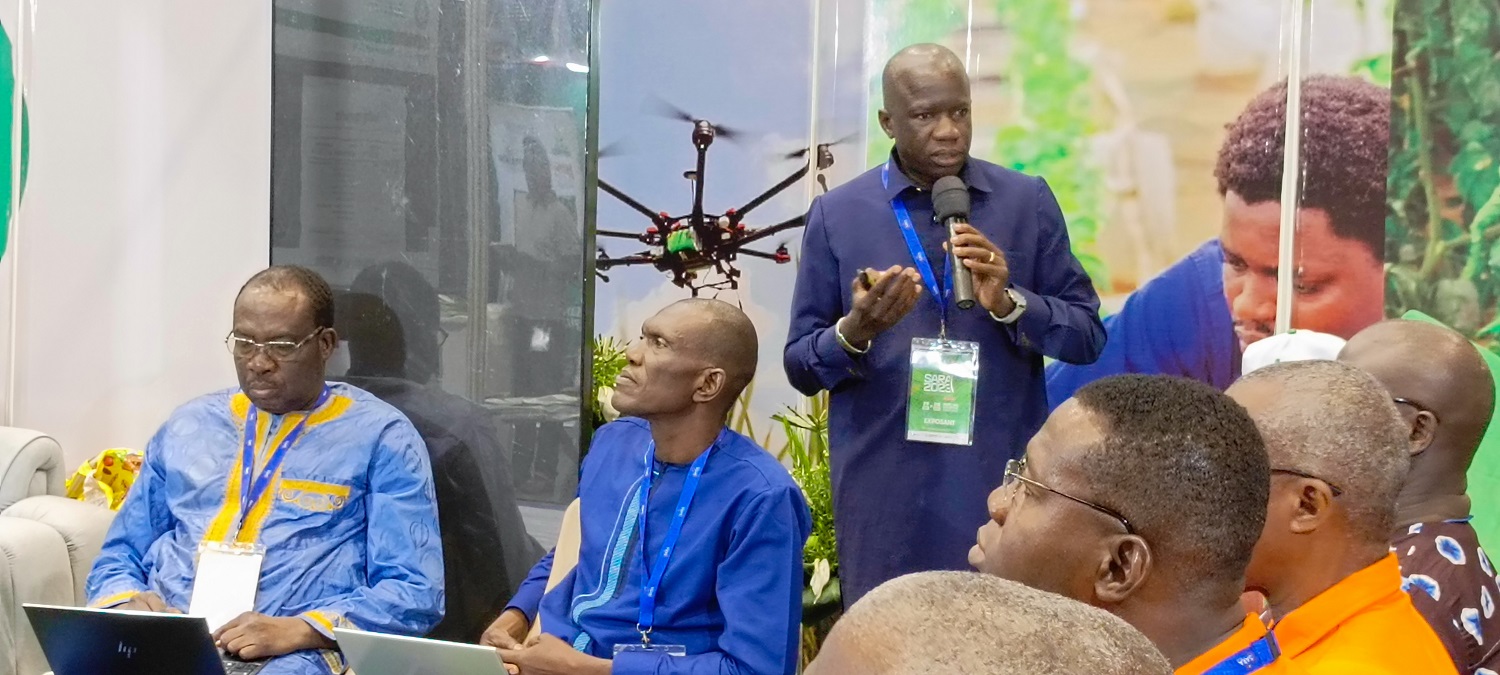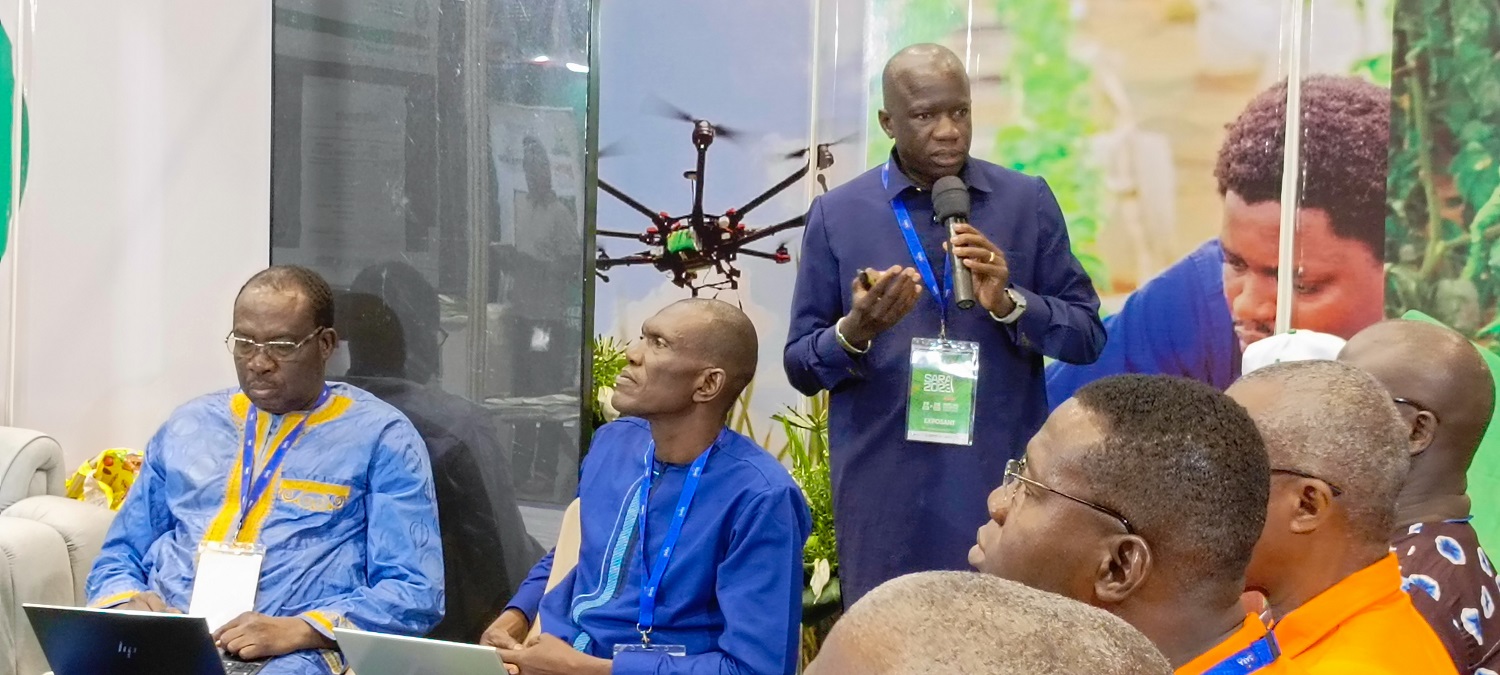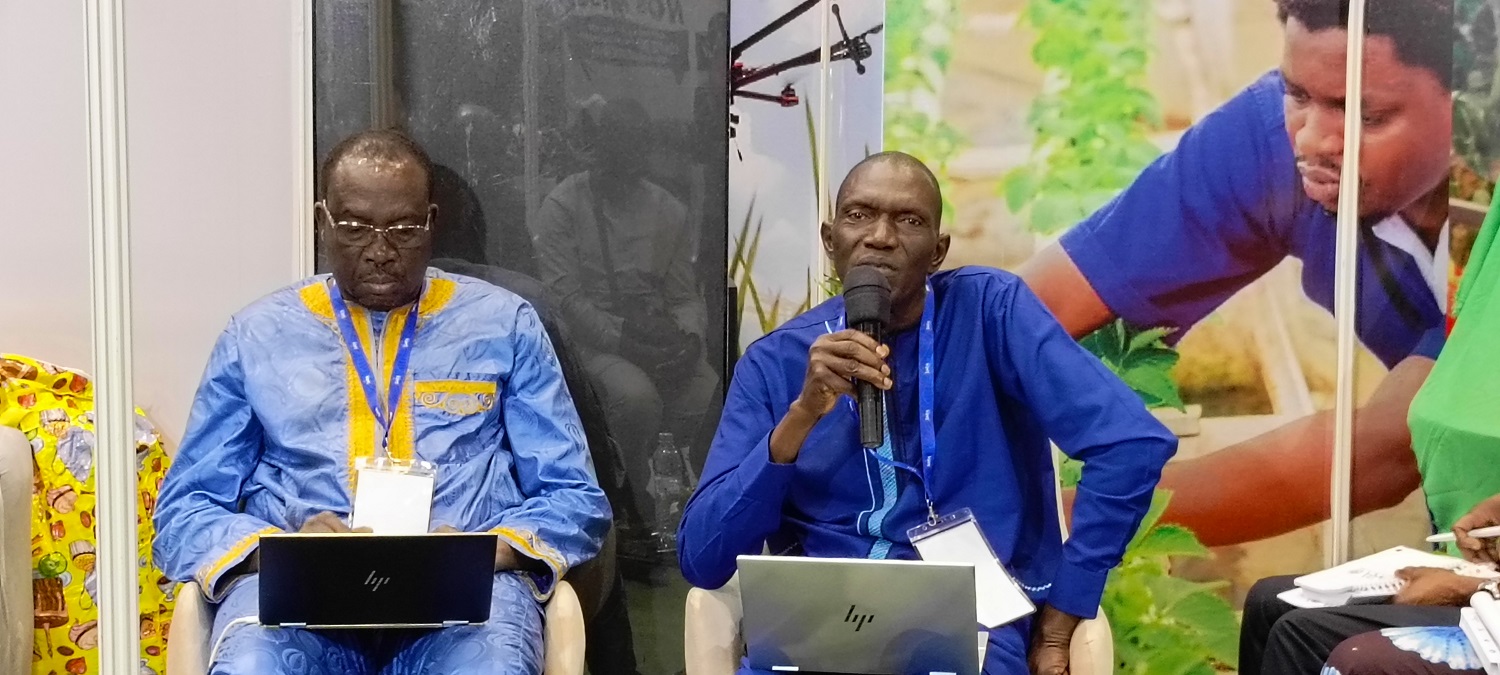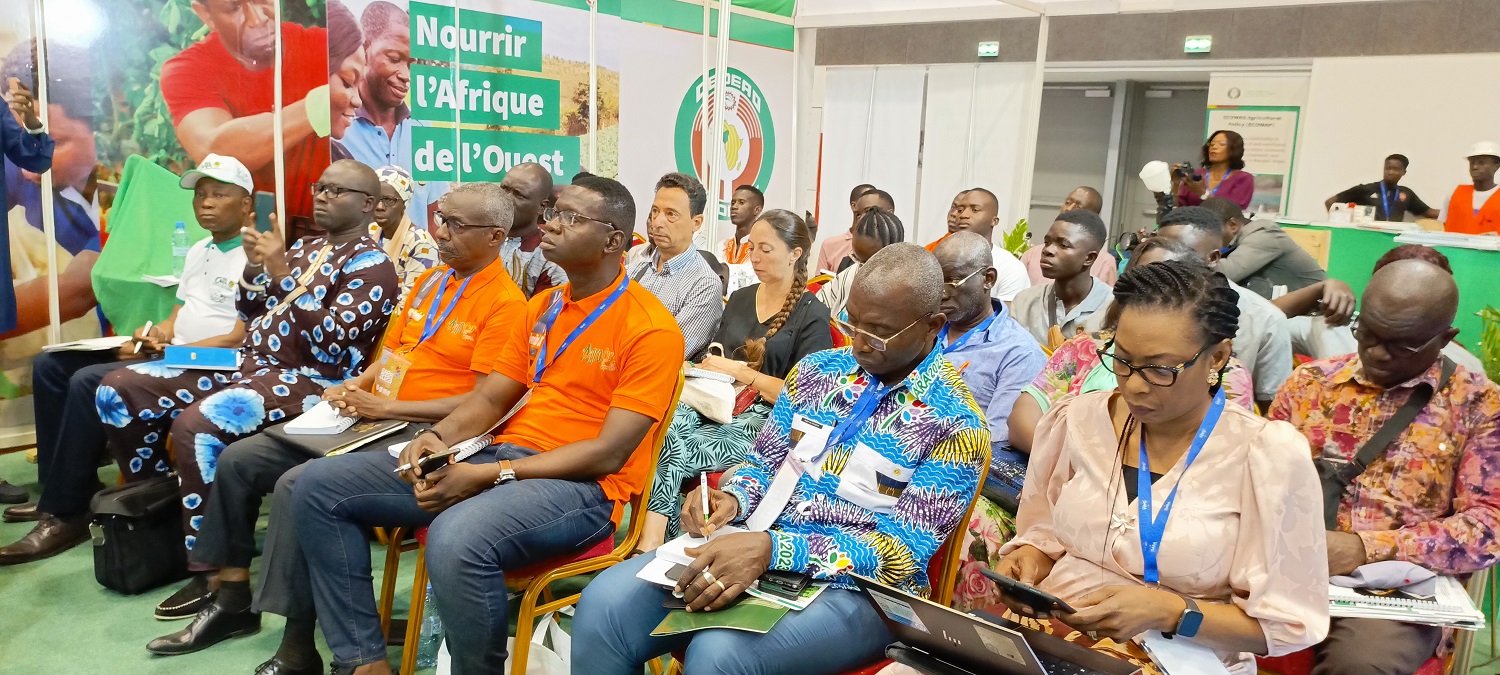ECOWAS climate-smart technologies presented to the public through a side-event at SARA
04 Oct, 2023On 3rd October 2023, ECOWAS organized its first side-event at SARA 2023 on a topical theme: climate-smart agriculture and agroecology: opportunities and challenges for West Africa.
In the presence of a varied audience composed of students, farmers, economic operators and researchers, the ECOWAS panellists were : Prof. Jacques Ndione, Coordinator of the CSA project, Dr Borgui Yérima, Coordinator of the agroecology programme and Mr Konlani Kanfitin, Head of the Technical Operations Division at the Regional Agency for Agriculture and Food (RAAF) used specific examples to explain the effects of climate change and the measures taken to adapt to and mitigate climate change.
It emerged from the various explanations that agriculture is a victim of climate change. It is subject to variations, sometimes extreme, in temperature and rainfall (delayed seasons, heat peaks, shortage or excess of water, altered distribution of rainfall). The effects are direct, for example when plant growth is altered, and indirect, when parasite pressure increases (insect pests, diseases). Agriculture must therefore adapt if it is to continue to fulfil all the functions to which it contributes, in particular feeding humanity. But agriculture is also jointly responsible for climate change. It is responsible for around 12% of greenhouse gas emissions (methane, nitrous oxide, carbon dioxide), or 24% if we consider changes in land use linked to forestry and the agricultural frontiers that follow. These emissions are due to poorly used inputs, when fossil fuels are used, or to some intensive livestock farming or flooded rice cultivation practices.
Agriculture can also become one of the solutions to climate change by helping to mitigate it. With appropriate practices, we can reduce agricultural greenhouse gas emissions and store carbon in the soil and biomass (plants, living soil organisms, etc.).
So what is ECOWAS proposing?
On an operational and technical level, ECOWAS has developed and is promoting climate-smart agriculture (CSA) and ecologically intensive agriculture (EIA) techniques, which are essential for improving soil carbon levels and mitigation in the context of West Africa’s agro-ecological zones. Projects are being implemented in most ECOWAS countries to raise awareness of AIC and agro-ecological technologies and ensure that they are taken to scale.
At institutional level, the ECOWAS Agricultural Policy (ECOWAP) adopted in 2005 has been supplemented by its strategic programme on reducing vulnerability and adapting to climate change. In 2015, ECOWAS and UEMOA launched the West African Alliance for Climate-Smart Agriculture (WAACA) to implement the continental alliance, which aims to have 25 million households adopting CSA practices by 2025.
In 2021, a framework has been put in place through the development and adoption of a climate strategy by ECOWAS to facilitate the coordination of all national and regional actions in the West African sub-region for greater impact.
All participants were briefed on climate-smart agriculture and agro-ecology approaches and technologies for dealing with climate change.























